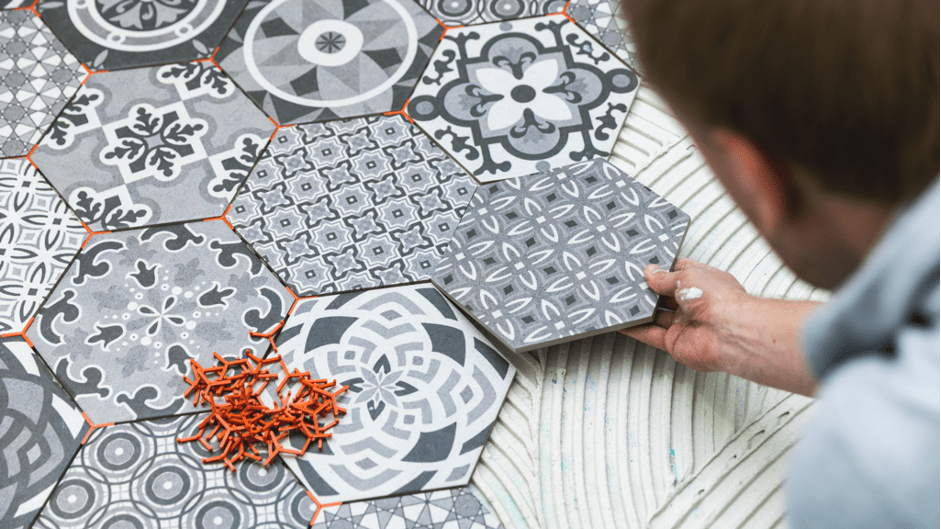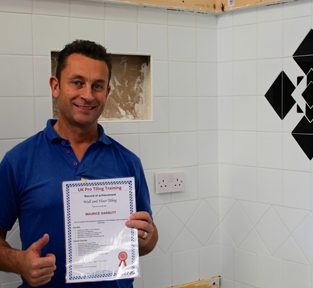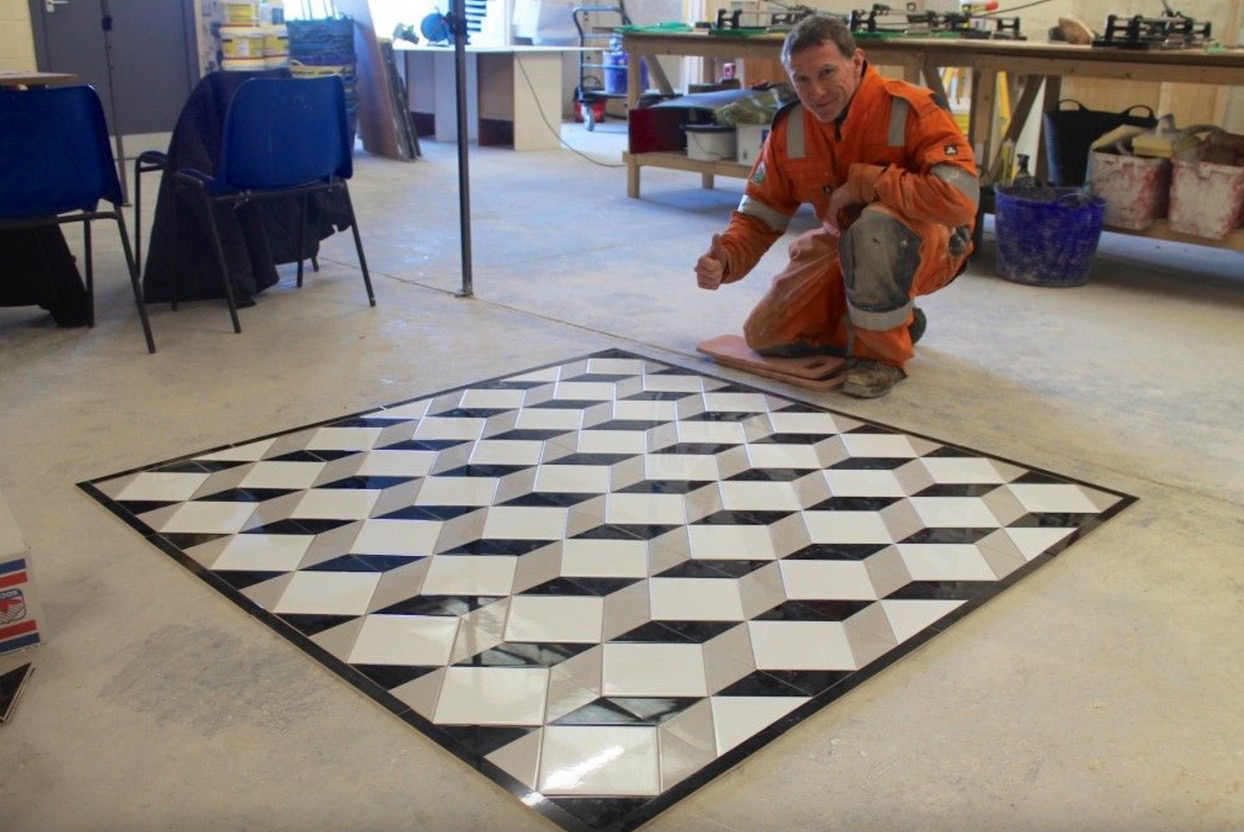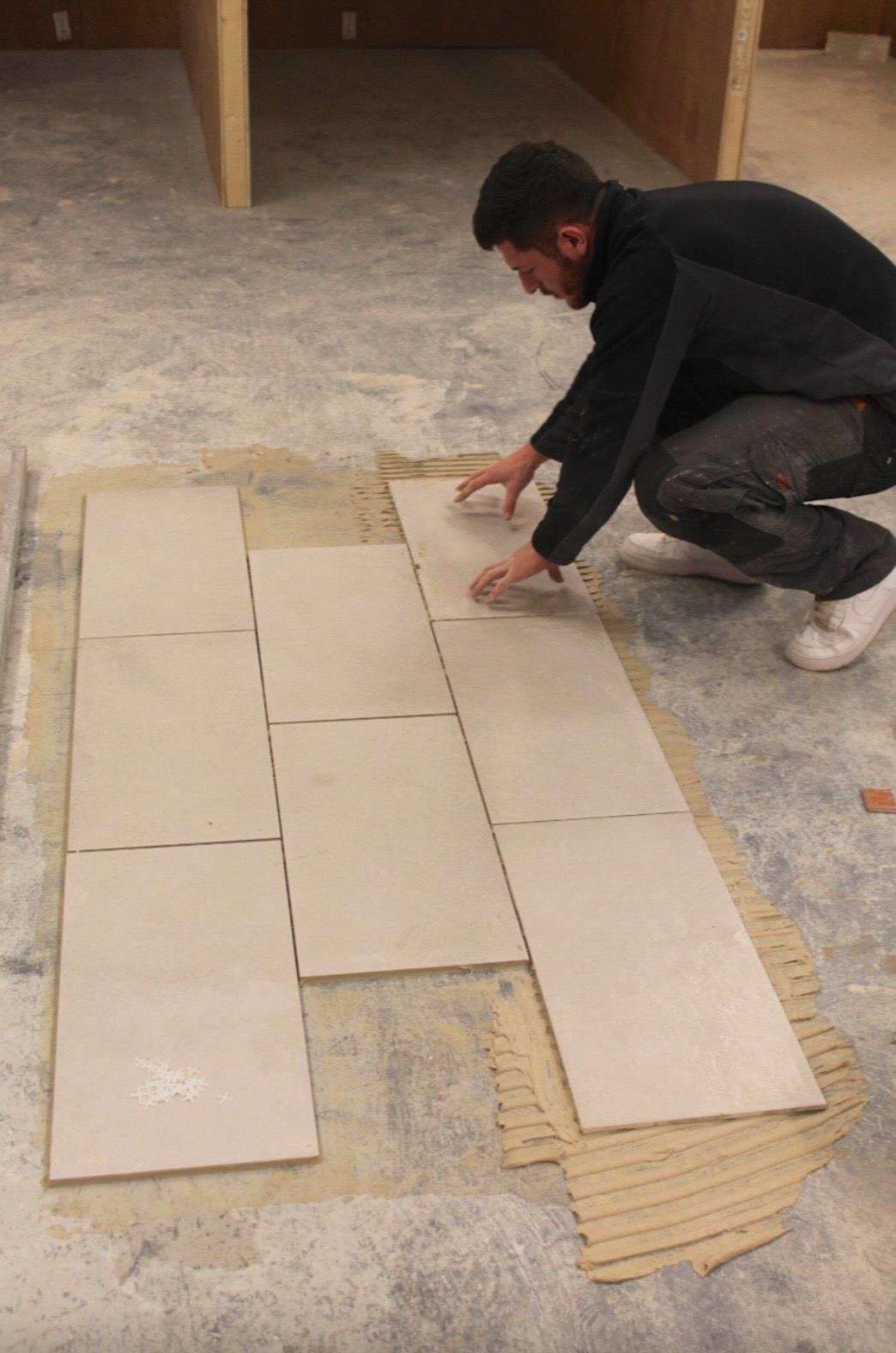Are Tilers in Demand?

Job security is a big worry for most people, and we live in a society that changes so quickly. Technology gives us so much, but as it evolves, people wonder if their chosen career will even exist in a few years.
This post will explore whether tiling is a viable career option and reveal the demand for tilers in the UK.
Why Is It Important to Consider Your Career Options?
The internet was a relatively new prospect just twenty years ago, and smart technology was nothing but a possibility. So much has changed, and our lives are dominated by technology, including how we eat, socialise, relax and work.
As AI (Artificial Intelligence) gets more advanced, specific industries will suffer. According to TechRepublic, in 20 years, the retail, insurance and transportation industries will cease to exist and instead will be automated with AI, so it’s no wonder that people are worried about their futures.
One industry that will continue to thrive in the construction sector. As you can see from the data published by the National Office For Statistics, the sector remains stable, and there was only a 1% drop in building work during the Covid-19 pandemic.
If you’re looking for stability and a long-term assurance that you won’t be queueing up at the Job Centre, working in construction opens up plenty of career opportunities and broadens your prospects.
Tiling is one of the most popular jobs within the construction industry because it gives people the flexibility to work for themselves or become part of a larger team of builders.
An article published by Marketing Donut shows that tiling is, in fact, one of the most in-demand skills. Still, there’s a shortage of skilled professionals that can complete complex jobs and maintain the standards set by large construction companies.
It’s clear that tiling is a popular industry, but you need to work hard to ensure you can provide your clients with clean finishes and perfect your skills when it comes to complex jobs.
What Skills Do Tilers Need?
Tilers should have a range of skills, including strong attention to detail, working with tools, and understanding tiling techniques. However, customers will also expect you to provide them with support and advice on which tiles are best and what they can afford for their budget.
If you plan to go into business alone, you’ll need to focus on your business acumen and handle your finances. Time management, the ability to multitask and manage others, is essential to running a successful business. While many tilers decide to branch out, some prefer working for others or operating as sole traders.
Most importantly, tilers need to have a lot of dedication to their craft and accept critique from construction managers and customers. It’s an intricate job, and of all the construction trades, tiling requires more creativity and the ability to work well with your hands.
As new trends emerge, your customers will demand more from you, and only the most committed tilers will be able to offer a complete service.
What Can You Do With a Tiler Qualification?
Gaining a tiling qualification can be highly beneficial to your future, especially when you think about how many people use tiles in their homes. There is a range of courses you can do, but we always advise our clients that it’s best to focus on qualifications that build your knowledge and let you take on more challenging roles.
Many of our tilers go on to start their own business or work for a construction company, and there are plenty of opportunities to build a successful career. Some also choose to specialise in specific areas, including:
● Tile Installation
● Grout Specialist
● Tiling Instructor
There’s also the opportunity to progress as a site supervisor or manager within the construction industry. Whatever you choose, it’s essential to invest in tiling courses that will equip you with the skills you need to succeed.
Will Tiling Continue to Be a Popular Career?
It might surprise you to learn that the art of tiling began over 25,000 years ago, to 4700 BC in Egypt. The Romans also used ceramic tiles for much of their building work, and archaeologists found old tiles used by the Romans at a site in Wittenham in 2004.
Professional tilers also received a lot of work during Mediaeval times because they were particularly popular in churches, which continued until the 16th century.
After that time, tiling lost its popularity, but it would make a comeback during the Victorian period.
The industrial revolution made it much easier to mass-produce ceramic tiles, and it’s probably the most important era for us tilers.
Today, most homes use some form of tiling, and it’s prevalent in bathrooms and kitchens. Think about every pub or restaurant you’ve been to in the past year. You’ll notice that most have tiles in the bathroom or kitchen, so there’s always going to be a demand for tilers.
There are so many tiling options available today, and contemporary tiles can come in a sleek and simple design or be an intricate spectacle. Depending on your customer’s preferences, you might be asked to work with small tiles and keep to a particular pattern, so improving your skills is central to making it as a professional tiler.
Are You New to Tiling?
If you’re considering a career as a tiler, it’s essential to understand that you need to develop your practical skills and knowledge. While many online courses are available, they won’t give you the hands-on experience you need to make it a tiler.
We offer a range of in-house tiling courses designed to equip you with everything you need to build a successful career. Our entry-level course is perfect if you’d like to explore a career in tiling or complete a home renovation, but we also offer professional development courses for experienced tilers.
Studying with us means you get to learn from tilers with years of experience at a cost-effective price. Your learning journey will help you get that dream job, set up as a sole trader or start a construction business.
Contact us here today to learn more.



